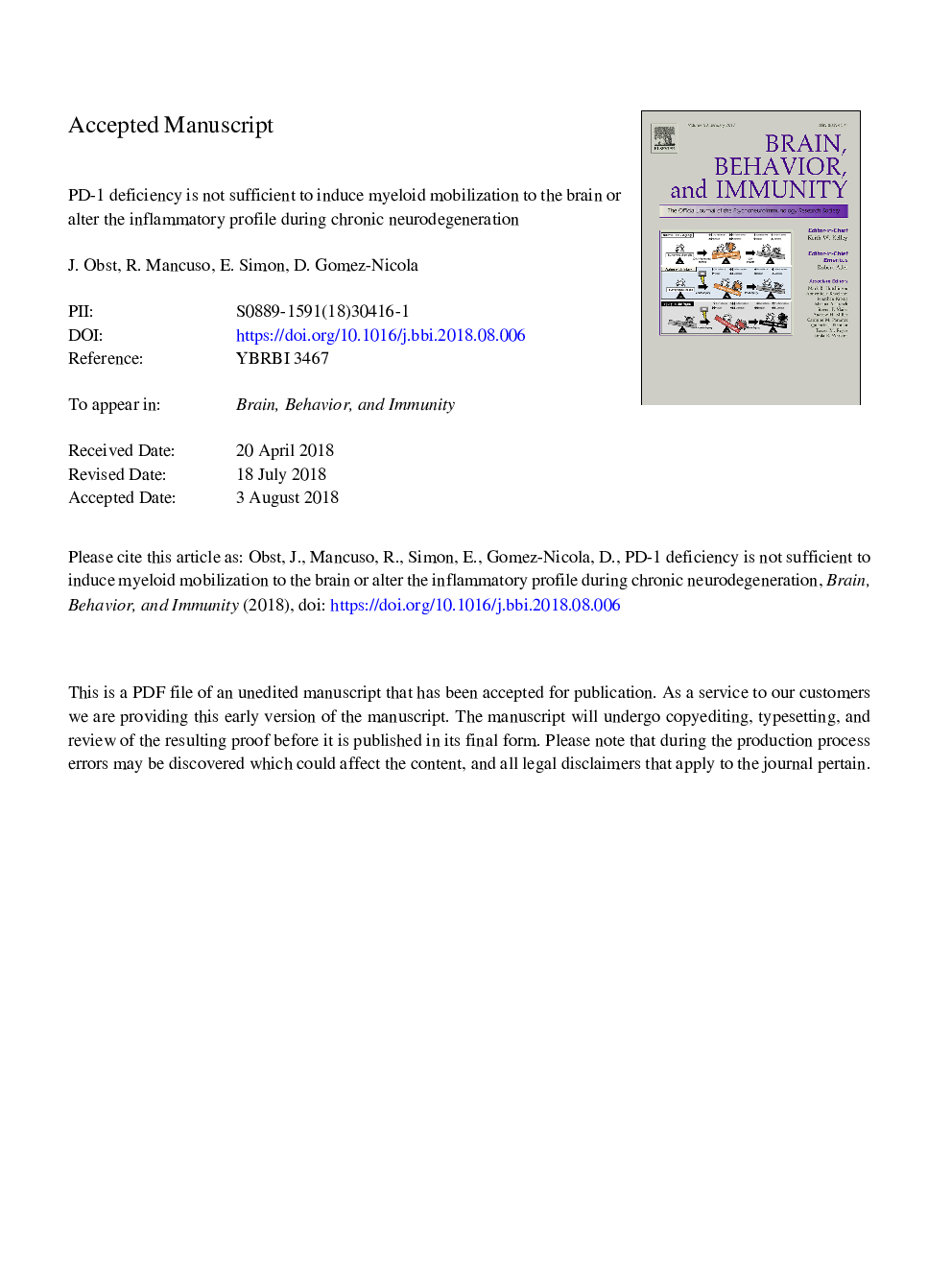| Article ID | Journal | Published Year | Pages | File Type |
|---|---|---|---|---|
| 8960777 | Brain, Behavior, and Immunity | 2018 | 23 Pages |
Abstract
Innate immune activation is a major driver of neurodegenerative disease and immune regulatory pathways could be potential targets for therapeutic intervention. Recently, Programmed cell death-1 (PD-1) immune checkpoint inhibition has been proposed to mount an IFN-γ-dependent systemic immune response, leading to the recruitment of peripheral myeloid cells to the brain and neuropathological and functional improvements in mice with Alzheimer's disease-like β-amyloid pathology. Here we investigate the impact of PD-1 deficiency on murine prion disease (ME7 strain), a model of chronic neurodegeneration. Although PD-1 was found to be increased in the brain of prion mice, the absence of PD-1 did not cause myeloid cell infiltration into the brain or major changes in the inflammatory profile. However, we observed a slight exacerbation of the behavioural phenotype of ME7 mice upon PD-1 deficiency. These results do not support the possibility of using immune checkpoint blockade as a therapeutic strategy in neurodegenerative disease.
Related Topics
Life Sciences
Immunology and Microbiology
Immunology
Authors
J. Obst, R. Mancuso, E. Simon, D. Gomez-Nicola,
